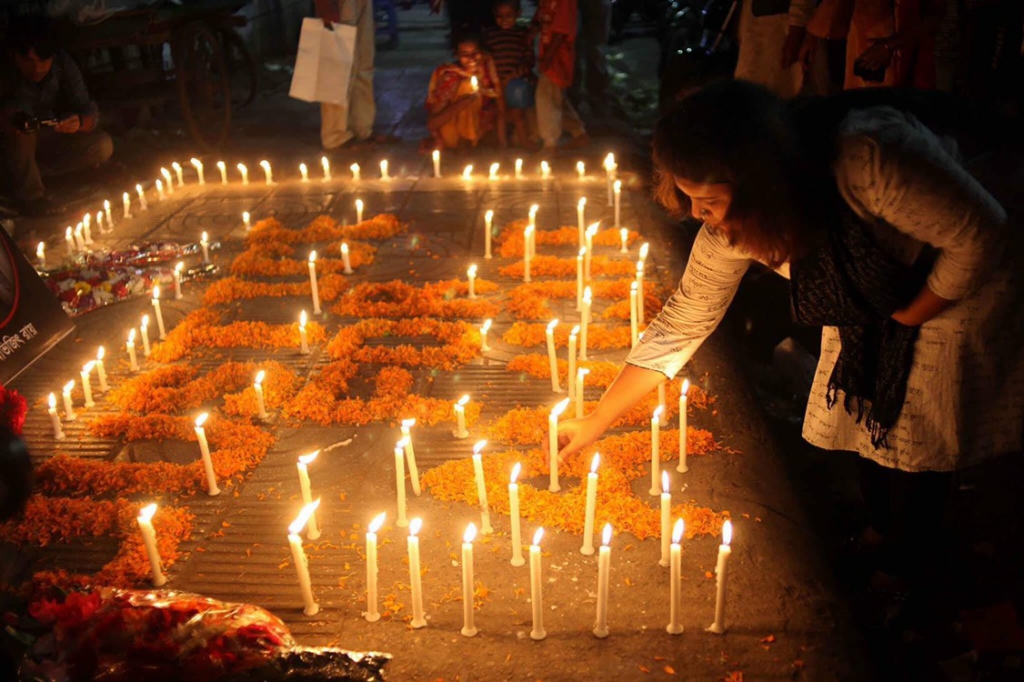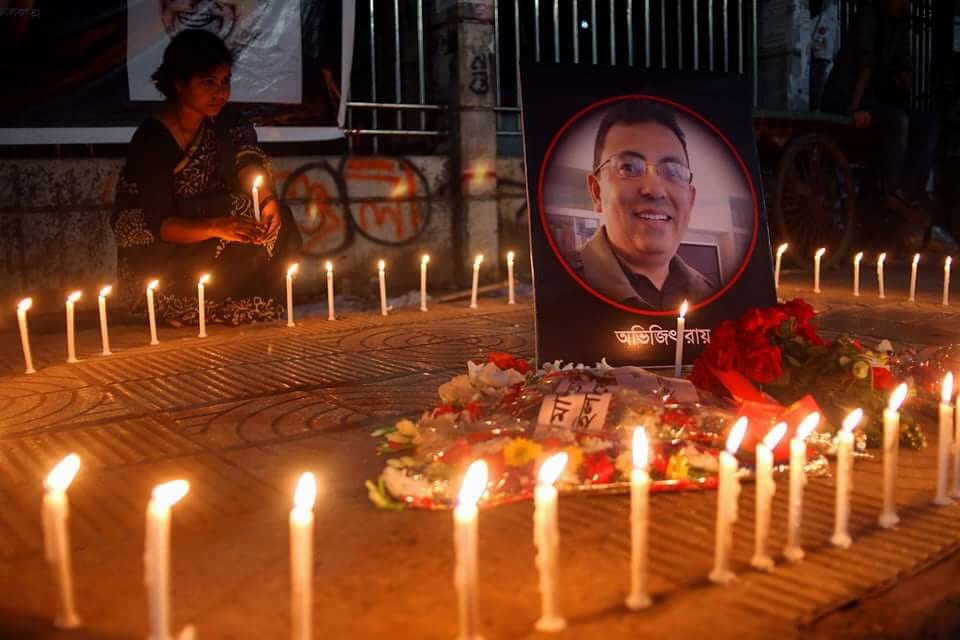It was a matter of bad luck that Giordano Bruno found himself back in his birth-land, Italy, after years of work and wanderings in France, England and Germany. It was his Venetian host Giovanni Moncenigo who denounced him to the Catholic inquisitors and after seven years of trail and imprisonment he was burned at the stake in 1600.
Bruno was an ordained priest, but his ideas, including that of pantheism and of many worlds in the universe that might harbor life, earned him the category of a heretic. I could not help but think that Avijit Roy, in many ways, resembled Giordano Bruno. An ever-curious soul, Avijit met his fate outside the Dhaka Book Fair where he came from the USA to see his books being published in his birth-land. The irony is even more pronounced if we knew that Bruno was invited by Moncenigo to Venice at the historic Frankfurt Book Fair in 1591.
https://www.youtube.com/watch?v=M0J2vR9ABdk
Unlike Bruno, Avijit Roy was not put up for any formal trial. However, in a country, where citizens pride themselves for their religious devotion, many saw his assassination as something that he brought upon himself. Ironically, many of the same people hold Giordano Bruno in highest esteem. The strange logic behind such math is complicated, but understandable if we factor in such parameters as hypocrisy and compromise.
Campo de Fiori is a square in Rome where Bruno was burned, a statue of him stands there today. Czesław Miłosz, the Polish-American poet and a Nobel laureate, writes about this place in one of his poems:
There is an interesting word in English called Atavism which is derived from Latin Atavus (ancestor). It means the recurrence of or reversion to a past style or outlook. I wonder if the glazed eyes of many spectators who witnessed the brutal assault on Avijit Roy and his wife Bonya Ahmed or the numbed minds of the citizens who imbibed the news next day reflected the same sentiments expressed by the Roman denizens four hundred years ago. Milosz writes further:
Avijit Roy's murder is no less painful than Giordano Bruno's; it was not done on a flaming pyre, but was done with hatchets. Both of them were not afraid to speak their minds. In both cases, their countrymen failed to appreciate the importance of their acts. A plaque denoting the site of Avijit's assassination is yet to be placed, it took a few hundred years for Bruno's statue to be erected at Campo de Fiori. In the meantime, we can only fight against our atavistic tendencies and don't let our memories be trampled by historical apathy.

